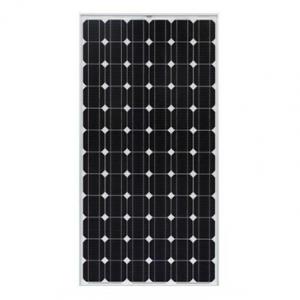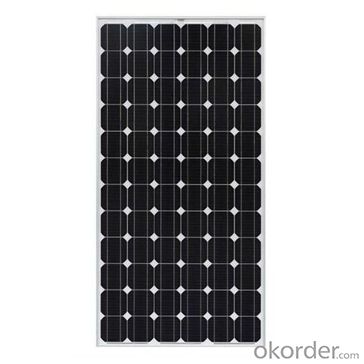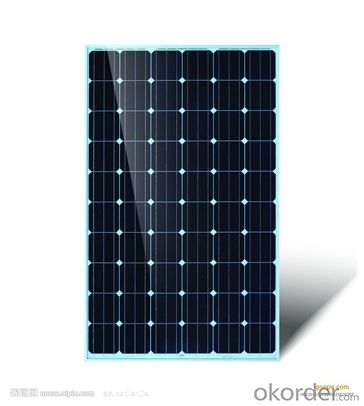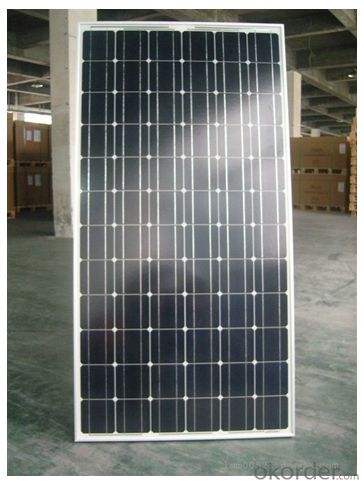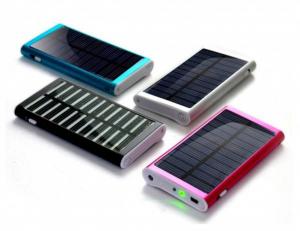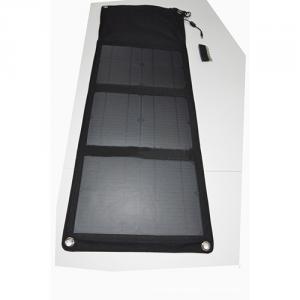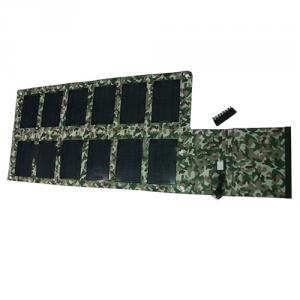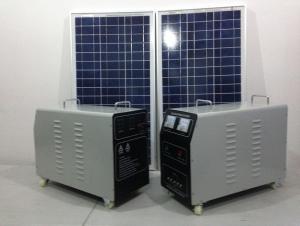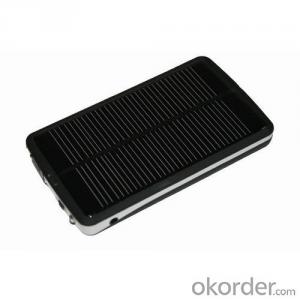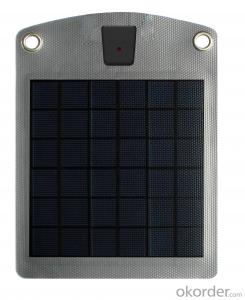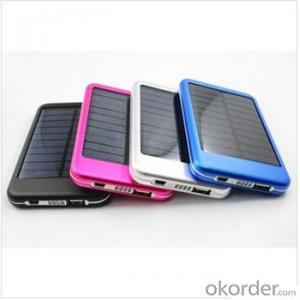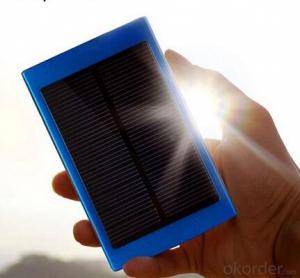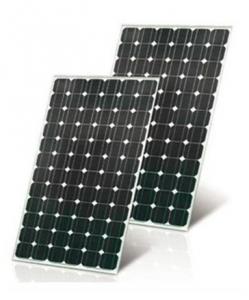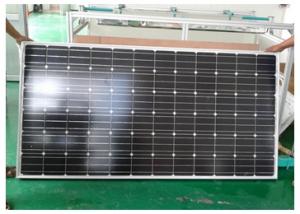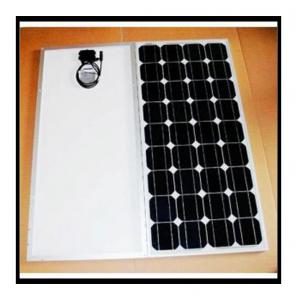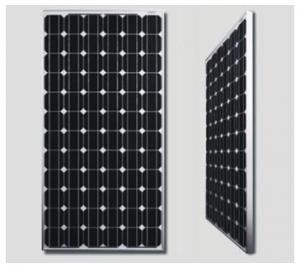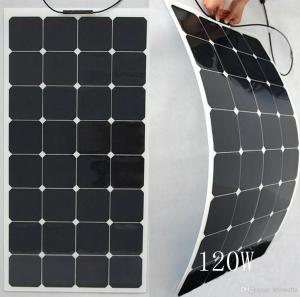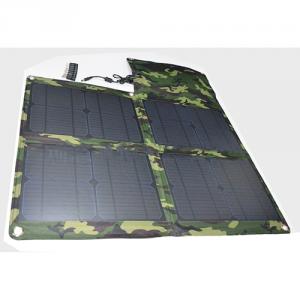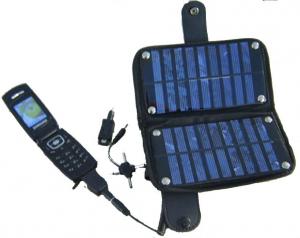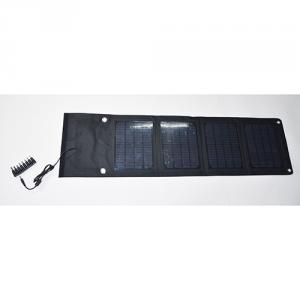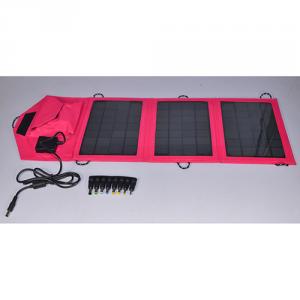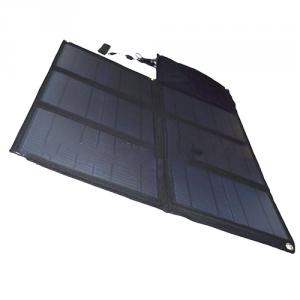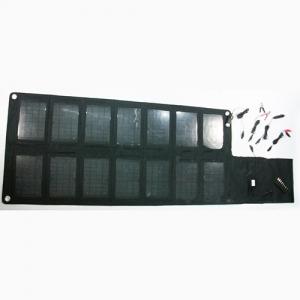12V Solar Chargers - 195W Mono-Crystalline Solar Module 125*125
- Loading Port:
- China Main Port
- Payment Terms:
- TT or LC
- Min Order Qty:
- -
- Supply Capability:
- -
OKorder Service Pledge
OKorder Financial Service
You Might Also Like
Solar Module Descriptions:
A solar panel, or photovoltaic PV module, is a device that is composed of solar cells and which, when struck by photons of light from the sun, generates an electrical current which can then be used to power DC or AC electrical loads.
We are one of the well known manufacturers and suppliers of an extensive range of solar module. Entire range of our products is well checked before offering to the clients to ensure that our products are free from any defect. Our products are delivered within the stipulated time frame. These solar module are available for outdoor applications. Our solar module are designed as per the set industry standards and can be bought at market leading Available with us in various dimensions, these modules are stringently tested under define parameters before the final dispatch by our professional who hold rich industry experience in this domain.
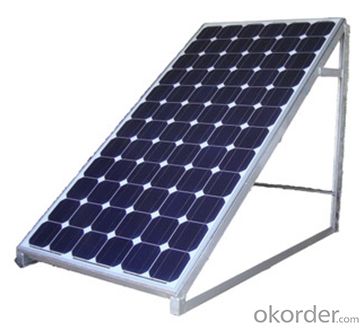
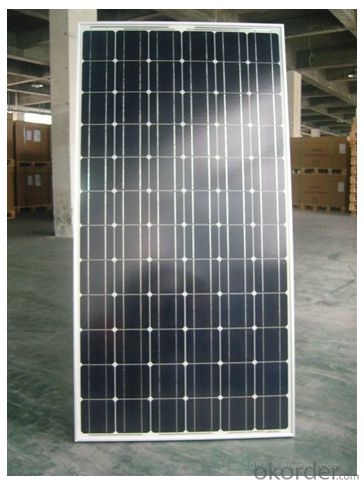
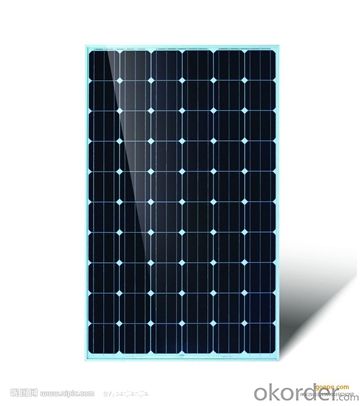
Electrical Characteristics
Module Power (W) | 195> Pm |
Max –Power (W) | 190 |
Max-Power Voltage (V) | 36.75 |
Max-Power Current (A) | 5.31 |
Open-Circuit Voltage (V) | 45.4 |
Short-Circuit Current (A) | 5.7 |
Module Efficiency (%) | 15.3 |
Max-System Voltage (VDC) | 600V(UL)/1000V(IEC) |
Max. Series Fuse (A) | 10 |
Pm Temperature Coefficients (%/℃) | -0.4601 |
Isc Temperature Coefficients (%/℃) | 0.0981 |
Voc Temperature Coefficients (%/℃) | -0.5186 |
NOCT Nominal Operating Cell Temperature (℃) | 45+ 2 |
Maximum load rating ( Pa) | 5400 |
Mechanical Characteristics
Cable type, Diameter and Length | 4mm2, TUV certified, 1000mm |
Type of Connector | Compatible with MC4 plug |
Arrangement of cells | 6*12 |
Cell Size | 125*125 |
Dimension | 1580*808*40 |
Weight | 15.5Kg |
No. of Draining Holes in Frame | 10 |
Glass, Type and Thickness | High Transmission, Low Iron, Tempered Glass 3.2mm |
Features
Guaranteed positive tolerance 0/+5w ensures power output reliability
Strong aluminum frames module can bear snow loads up to 5400Pa and wind loads up to 2400Pa.
Excellent performance under low light environments (mornings evenings and cloudy days)
12 years for product defects in materials and workmanship and 25 years for 80% of warranted minimum power.
Certifications and standards: IEC 61215.
Manufactured according to International Quality and Environment Management System (ISO9001, ISO14100).
FAQ
Q: Do you have any MOQ limit?
Our MOQ is 200 pieces.
Q: How long is the warranty period for the solar modules?
15 years 90% of its nominal power rating.
25 years 80% of its nominal power rating
Q: What kind of loads can I run on PV?
With a correctly designed PV system you can power almost any electrical load. However, as the load size increases the expense also increases. Loads like hot water heaters, air conditioners, room heaters and electric stoves should be avoided. The added cost of trying to power loads like these is very cost prohibitive. If these loads have to be powered it will be a lot less expensive to change the appliance to use an alternative fuel type like propane.
Q: When do I need a charge controller and why?
The safest way to figure out if you need a charge controller is to take Battery Amp Hour Capacity and divide this by the Solar Panel max. power amp rating. If the quotient is above 200, you don't need a controller. If the number is less than 200 than you need a controller.
Q: What is PV & how does it work?
PV stands for photovoltaic. Photo = Light and Voltaic = Electricity. A solar cell converts light to electricity.
A solar cell is made of silicon. Computer chips are made of this same material. Basically, when light strikes the surface of a solar cell some of it is absorbed into the silicon. This light energy bumps the electrons loose and causes energy to flow.
By packaging approximately 36 solar cells together a solar panel or a solar module is created. When you have more then one solar panels you create a solar array.
- Q: Are solar chargers suitable for camping trips?
- Yes, solar chargers are suitable for camping trips. They provide a convenient and eco-friendly way to charge various devices such as smartphones, cameras, or GPS devices by harnessing the power of the sun. This eliminates the need for traditional electrical outlets, making them perfect for outdoor adventures where access to electricity may be limited or unavailable.
- Q: Can solar chargers be used for charging electric scooters with removable batteries?
- Yes, solar chargers can be used to charge electric scooters with removable batteries. However, it is important to ensure that the solar charger's power output matches the scooter's battery specifications. Additionally, the charging time may vary depending on the solar charger's efficiency and the available sunlight.
- Q: How do solar chargers connect to devices?
- Solar chargers typically connect to devices through a USB port, allowing for easy and universal compatibility with a wide range of electronic devices such as smartphones, tablets, cameras, and more.
- Q: Can solar chargers charge electric foot spas?
- Yes, solar chargers can charge electric foot spas as long as the charger provides the appropriate voltage and current required by the foot spa.
- Q: Are solar chargers suitable for charging electric skateboards?
- Yes, solar chargers can be suitable for charging electric skateboards. However, it's important to consider the power output and compatibility of the solar charger with the skateboard's battery. Additionally, the charging time may be longer compared to traditional electric outlets, so it's essential to plan accordingly and ensure the solar charger meets the specific needs of the skateboard.
- Q: What are the best solar chargers for remote research expeditions?
- The best solar chargers for remote research expeditions are typically lightweight, durable, and have high power output. Some top options include the Goal Zero Nomad 28 Plus, Anker PowerPort Solar Lite, and the BioLite SolarPanel 10+. These chargers are designed to withstand harsh environments, provide efficient charging, and are portable enough for expeditions.
- Q: Can I charge my phone with a solar charger?
- Yes, you can charge your phone with a solar charger. Solar chargers harness the energy from the sun and convert it into electricity, providing a sustainable and portable solution for charging electronic devices like phones.
- Q: Can solar chargers charge electric grills?
- No, solar chargers are not typically powerful enough to charge electric grills due to their high energy requirements. Electric grills typically require a higher voltage and wattage than what solar chargers can provide.
- Q: Can I use a solar charger to charge my portable blender?
- Yes, you can use a solar charger to charge your portable blender, as long as the solar charger provides sufficient power output and has the appropriate charging interface for your blender.
- Q: How long can a solar charger store energy?
- A solar charger can store energy for an indefinite period of time as long as it is properly maintained and the battery is in good condition.
Send your message to us
12V Solar Chargers - 195W Mono-Crystalline Solar Module 125*125
- Loading Port:
- China Main Port
- Payment Terms:
- TT or LC
- Min Order Qty:
- -
- Supply Capability:
- -
OKorder Service Pledge
OKorder Financial Service
Similar products
Hot products
Hot Searches
Related keywords
